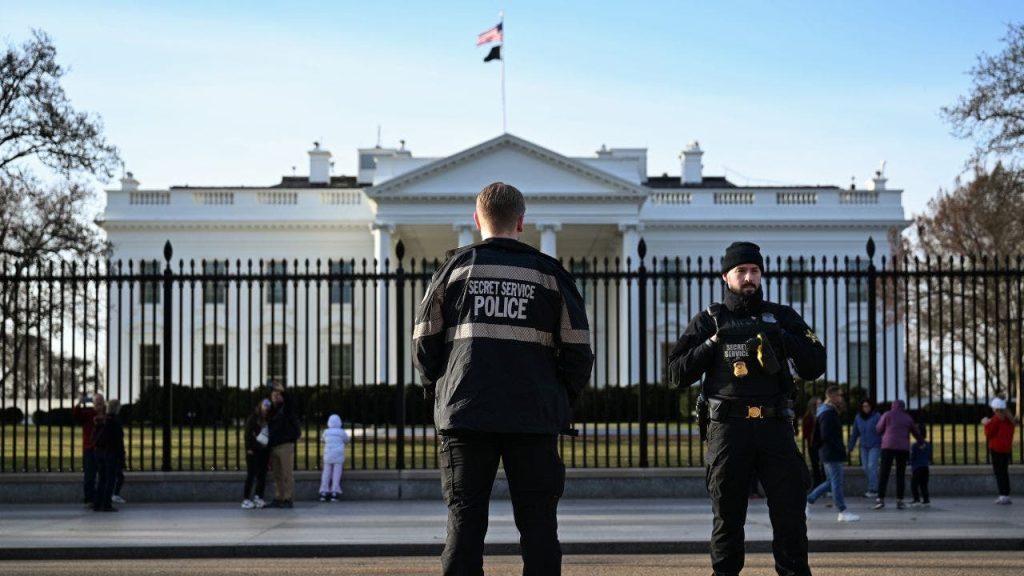Trump’s Security in the Spotlight Following Charlie Kirk’s Assassination
President Donald Trump’s security has become a critical focus following the tragic assassination of conservative activist Charlie Kirk, especially coming just a year after two attempts on Trump’s own life. As the former president prepares to attend Kirk’s memorial service at Arizona’s State Farm Stadium—a venue capable of holding over 73,000 people—security concerns have reached unprecedented levels.
Federal law enforcement agencies, including the Department of Homeland Security, have issued warnings about “several threats of unknown credibility” targeting Trump, Vice President JD Vance, and others planning to attend the memorial. Security experts recognize the heightened risks associated with such a high-profile event, which will likely attract significant media coverage. Tim Miller, a former Secret Service agent who served during the Bush and Clinton administrations, emphasized that the agency understands the gravity of the situation, noting that the “threat picture” for Trump may be the highest ever faced by any president. “The Secret Service is never going to underestimate the potential threats of these events,” Miller explained, highlighting that they will provide maximum security, particularly considering that Kirk was killed at an outdoor event. Trump himself has confirmed his attendance at the memorial, telling reporters, “I’m going to be at the stadium, and I guess I’ll say a few words… I knew him very well. He was an amazing guy. He was all about young people and getting them started.”
The assassination of 31-year-old Kirk, who was shot in the neck during a stop on his American Comeback Tour at Utah Valley University, has dramatically increased pressure on the Secret Service to enhance their protection capabilities. While Kirk did not receive Secret Service protection at his event, his death serves as a stark reminder of the dangers facing public figures in today’s polarized political climate. As Miller soberly noted, “After yesterday, I am sure every Secret Service agent recognizes that every day that they go to work could be the day.” The White House has responded to these growing concerns by requesting an additional $58 million in security funding for the executive and judicial branches, to be included in a continuing resolution before government funding expires on September 30. Simultaneously, the Senate has approved a rule change allowing lawmakers to use official office funds for personal security measures, reflecting the broader recognition of increased threats across the political landscape.
In the immediate aftermath of Kirk’s assassination, the White House implemented venue changes to provide Trump with greater security. Most notably, Trump’s speech at the Pentagon commemorating the 9/11 terrorist attacks was moved indoors as an “abundance of caution” measure. These adjustments reflect the heightened state of alert following the two previous assassination attempts against the former president. According to Miller, “The Secret Service now has to play at a level of enhanced security that they’ve never dreamed of before,” adding that while Secret Service Director Sean Curran is “doing a good job in leading that effort,” the urgency of the situation remains paramount: “Here’s the bad news for the Secret Service: They don’t have time. This threat is now. Can you imagine—they already shot our president once. Can you imagine if they’re able to kill him?”
The Secret Service has maintained its position that Trump “receives the highest levels of U.S. Secret Service protection,” stating that the agency “adjusts our protective posture as needed to mitigate evolving threats.” However, citing operational security concerns, they have declined to discuss the specific means and methods employed in their protective operations. This silence on specific security measures is standard practice, but it comes at a time when public scrutiny of the agency’s effectiveness has never been higher. The assassination of a prominent figure like Kirk, who was close to Trump, has only intensified questions about whether current security protocols are sufficient to protect high-profile political figures in an increasingly volatile environment.
As Trump prepares to join thousands of mourners at State Farm Stadium to honor Kirk’s memory, the event represents both a solemn occasion of remembrance and a significant security challenge. The convergence of a former president, current political figures, and a massive crowd creates precisely the kind of environment that security professionals find most concerning. The tragedy of Kirk’s death at just 31 years old has rippled through conservative circles and beyond, reminding the nation of the very real dangers that political violence poses to democratic discourse. While enhanced security measures may provide some reassurance, the fundamental question remains: how can a free and open society protect its political leaders and activists without fundamentally altering the nature of public engagement? As Miller and other security experts have made clear, this is not merely a technical problem for the Secret Service to solve, but a profound challenge that strikes at the heart of American political culture in these troubled times.


